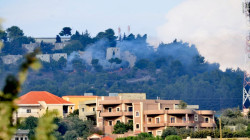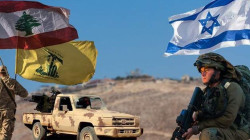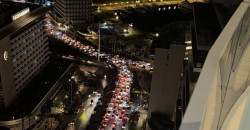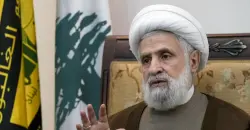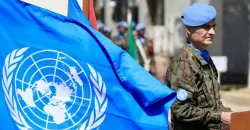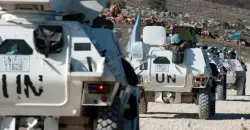Israeli attacks on UNIFIL escalate: a strategy to dismantle peacekeeping efforts in southern Lebanon?
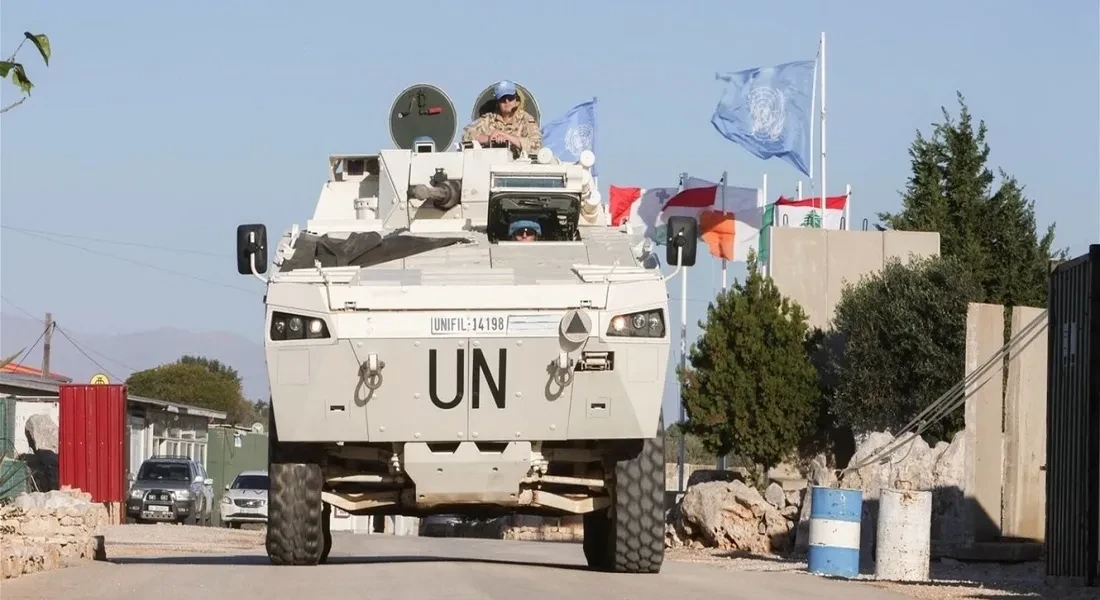
Shafaq News/ Rising tensions in southern Lebanon are sending shockwaves through the international community as Israeli attacks on United Nations peacekeepers, known as UNIFIL, escalate. Israel may be attempting to reshape the presence of international forces. This could involve either removing them entirely or modifying their mission to better align with Israel's.
Attacks on UNIFIL
The military harassment against UNIFIL soldiers has escalated to such an extent that UN Secretary-General Antonio Guterres condemned the recent firing on UNIFIL positions, asserting that such actions by Israel are unacceptable. This condemnation followed concerns raised by the White House regarding these incidents, which stated that it is deeply concerned about reports of Israeli fire directed at UN peacekeepers' positions in Lebanon. The White House emphasized that it is essential for Israeli forces to ensure the safety and security of UN peacekeepers.
In a statement received by Shafaq News, UNIFIL confirmed “Two peacekeepers were injured after an IDF Merkava tank fired its weapon toward an observation tower at UNIFIL’s headquarters in Naqoura, directly hitting it and causing them to fall. The injuries are fortunately, this time, not serious, but they remain in hospital.”
“IDF soldiers also fired on UN position (UNP) 1-31 in Labbouneh, hitting the entrance to the bunker where peacekeepers were sheltering, and damaging vehicles and a communications system. An IDF drone was observed flying inside the UN position up to the bunker entrance,” the statement proceeded.
The UNIFIL also called on Israel and all parties to “Respect the inviolability of UN premises at all times. UNIFIL peacekeepers are present in south Lebanon to support a return to stability under Security Council mandate. Any deliberate attack on peacekeepers is a grave violation of international humanitarian law and of Security Council resolution 1701.”
Furthermore, two days ago, an Israeli force backed by tanks and armored vehicles, as part of its attempts to incursion into villages near the border, took a suspicious position adjacent to the UNIFIL headquarters in Naqoura, which could have put the international soldiers in direct danger because Lebanese resistance fighters were confronting the Israeli forces trying to advance along the border.
International Reactions
Italy, Spain, Canada, and Russia have expressed outrage over the Israeli shelling of UNIFIL forces, with Moscow's Foreign Ministry calling for an immediate end to hostile actions against them. Spanish Prime Minister Pedro Sanchez further emphasized “Given what is happening in the Middle East, the international community to halt arms exports to the Israeli government, stating.”
The defense ministers of Five European countries participating in UNIFIL: Italy, France, Italy, Spain, and Ireland, are scheduled to meet within days to discuss the challenges posed by Israeli attacks on their security forces and the escalation of the war as Israel's assault on Lebanon expands.
Hezbollah sources said on Monday that it ordered its fighters to be patient and wait before targeting Israeli soldiers' movements behind another UN position in the town of Yaroun, “in order to preserve the lives of its soldiers.”
The Italian news agency “ANSA” reported that Israel targeted an Italian soldiers' base in UNIFIL with a drone and fired at the entrance of the shelter where the soldiers were taking refuge. While there were no casualties among the Italian troops, Indonesian soldiers were affected. Italian Defense Minister Guido Crosetto stated, “This cannot be tolerated.”
On its part, the Lebanese Ministry of Foreign Affairs and Emigrants said in a statement, on Friday that it “Condemns in the strongest terms the systematic and deliberate targeting of UNIFIL forces by the Israeli army. These repeated attacks confirm once again Israel's disregard for international legitimacy… These attacks cannot be separated from Israel's repeated and continuous attempts to undermine UNIFIL's mission.”
Concerns Over UNIFIL's Future Mission
According to a senior Lebanese political source who spoke to Shafaq News, Israel's goal in targeting UNIFIL is to “break all red lines that the enemy does not trust UNIFIL, and wants to send a clear message to everyone that it will not accept any decision that is not in its favor.”
A Lebanese MP source told Shafaq News “There are fears that the Israeli attacks on UNIFIL positions aim at removing the UN forces from their deployment areas adjacent to the border so that the invading Israeli forces can destroy the villages near its northern border without any supervision or witnesses.”
According to a Lebanese political source, there are additional concerns regarding Israel's efforts to alter UNIFIL’s mission within the framework of any future ceasefire talks. Israel aims to transform UNIFIL into “international police” that would monitor the border on its behalf. This would involve expanding UNIFIL's powers later to allow the use of force to prevent Hezbollah members, or other groups, that may launch attacks on Israel near the border in the future.
Lebanese concerns about such intentions increased after Israel's ambassador to the United Nations, Danny Danon, called for UNIFIL in a statement, “Our recommendation is that UNIFIL relocate 5 km north to avoid danger as fighting intensifies and while the situation along the Blue Line remains volatile as a result of Hezbollah’s aggression… Israel has no desire to be in Lebanon, but it will do what is necessary” to keep Hezbollah away from its northern border.
Israel has long considered the UNIFIL mission, which oversees compliance with UN Security Council Resolution 1701, to be unsatisfactory. The resolution states that UNIFIL will assist the Lebanese army in ensuring that the area between the Litani River and the border with Israel is “free of any armed elements, assets or weapons” of non-governmental organizations.
Former Assistant Secretary of State David Schenker, known for his pro-Israel positions, said, “To be sure, UNIFIL has been feckless, but 1701 has failed largely because the LAF and the Lebanese government are not committed to the mission,” adding that “With Hezbollah militarily degraded and its command and control disrupted, the organization may be reconsidering its opposition” to withdrawing from south of the Litani River.
About UNIFEL
UNIFIL was formed under UN Security Council resolutions 425 (1978) and 426 (1978), which called on Israel to cease its military actions and withdraw its forces from all Lebanese territory.
The Council also decided to establish the United Nations Interim Force in Lebanon (UNIFIL), and the first UNIFIL troops arrived in the area on March 23, 1978. According to the UNIFIL website, UNIFIL was formed for three broadly defined objectives: Confirming the withdrawal of Israeli forces. Restore international peace and security. To assist the Government of Lebanon in extending its effective authorityinthearea.
